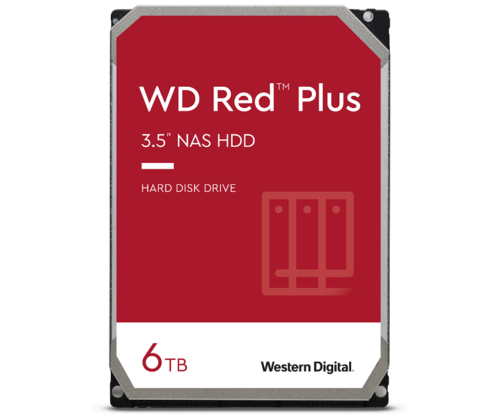With SSDs reaching a new level of affordability, we no longer recommend using mechanical hard drives as primary system storage. However, for a secondary drive with substantial storage capacity, Seagate IronWolf NAS drives remain unbeatable.
Being NAS-optimized, the IronWolf series is not inexpensive for a disk drive, as it is designed for intensive workloads involving constant read/write operations over extended periods. These drives are more reliable, offer higher capacities, and perform well (for a hard drive). It’s worth noting that higher-end series like the IronWolf Pro and Exos are intended for larger servers and focus more on vibration resistance than on performance.
The latest IronWolf HDDs are available in capacities of 1/2/3TB (5,900 RPM, 64MB cache), 6TB (5,600 RPM, 256MB cache), and 8/10/12TB (7,200 RPM, 256MB cache). The latter versions come with a five-year warranty and three years of data recovery services. Additionally, these drives use conventional magnetic recording (CMR) technology instead of shingled magnetic recording (SMR), avoiding the write performance penalty associated with SMR used in cheaper, denser disks.
Inevitably, this also means paying a small premium over budget drives. For example, an 8TB IronWolf drive will set you back around $170, while an identical capacity Barracuda can be had for $125.
A Worthy Alternative: WD Red Plus
WD NAS drives have been priced to compete with Seagate’s IronWolf across their entire range of 1/2/3/4/6/8/10/12/14TB models. There are, however, minor spec differences between the two, including RPM speeds and cache size. Notably, the latest version of the Red Plus drives offer 512MB of cache in the 12TB and 14TB models. However, those still come with three years of warranty.

HDD Budget Option
If you simply want an inexpensive, barebones HDD, the Seagate Barracuda line has a variety of options to get you the most storage for your money. A 4TB model can be had for just $80, or you can double the space with the capacious $125 8TB version. The Barracuda is also available in 1TB, 2TB, 3TB, and 6TB variants.
The 2TB model of the Barracuda is the sweet spot in terms of speed, spinning at 7,200 RPM with 256MB of cache. The 1TB model spins at the same speed, but only includes 64MB of cache. The 3TB and above models slow down to 5400 RPM, but we think that’s reasonable for the price. A larger cache is useful for storing frequently used files without needing to keep them on the slower disk.

